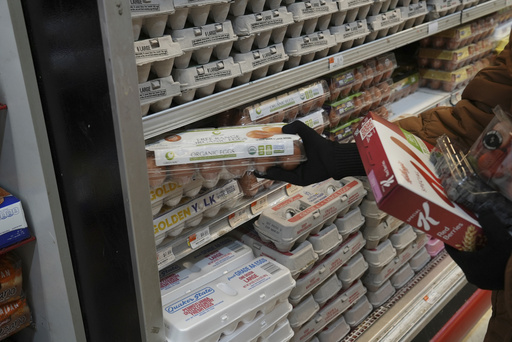NEW YORK — Researchers claim they have discovered the ideal method for boiling eggs to perfection. This discovery, however, comes at a time when egg prices in the U.S. are skyrocketing due to a recent avian flu outbreak.
The ultimate boiled egg is characterized by a creamy yolk alongside firm yet tender whites. Achieving this harmony can be tricky since the yolk cooks at a temperature that is lower than that of the egg whites. Overcooking can result in a dry, chalky yolk, while cooking at lower temperatures may result in whites that are undercooked and jelly-like.
To tackle this culinary challenge, scientists prepared hundreds of eggs, employing mathematical equations to decipher the heat transfer from a hot surface to the egg, along with how the egg’s internal contents change from a liquid to a solid state, passing through a semi-solid gel-like phase.
The researchers developed a detailed cooking method, which involves moving eggs in a steamer basket between two bowls of water—one boiling and the other set at a lukewarm temperature of 86 degrees Fahrenheit (30 degrees Celsius)—every two minutes for an overall cooking time of 32 minutes. After this process, the eggs must be cooled under running water before peeling.
“You can definitely try this technique at home, perhaps starting with half a dozen eggs,” stated Gregory Weiss, a chemist at the University of California, Irvine, who was not part of the study.
This innovative approach, called periodic cooking, allows the egg whites to oscillate between heating and cooling until they become completely firm, while the yolk maintains a consistent temperature, ultimately becoming creamy in texture. “It’s spreadable, almost like a topping for bread,” commented Emilia Di Lorenzo, one of the researchers from the University of Naples Federico II.
To ensure their method was indeed groundbreaking, the research team analyzed the eggs’ chemical structures and had them taste-tested by a panel of eight people, along with traditional hard-boiled eggs.
Published in the journal Communications Engineering, this new boiling technique may require more time in the kitchen compared to the conventional hard-boiling method, noted food scientist Joanne Slavin from the University of Minnesota. However, the delightful contrast in texture might justify the additional cooking time.
“This method takes longer but yields a superior result,” said Slavin, who was not involved in the research study.




